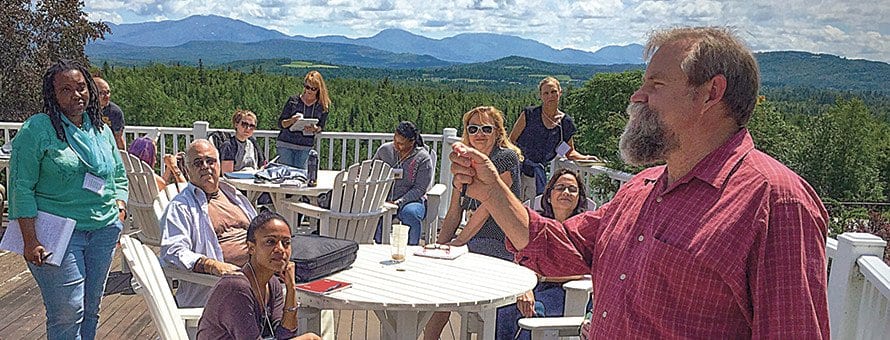
Go Write Your Book:
- Affordable tuition rates
- Each term begins with a weeklong residency
- Award-winning, nationally recognized faculty
- Only about 16 students per cohort
- Alumni have gone on to win major prizes
- Curriculum designed to help each student complete a publishable book
Low-Residency MFA Program Overview
Write the book you're meant to write, as you earn your Mountainview Master of Fine Arts (MFA) in fiction or nonfiction.
Our two-year, low-residency program allows students to live anywhere and work a full-time job. We never allow the number of students to exceed 65 total – about 16 per cohort – so our students develop close and sustaining relationships with faculty during our intensive weeklong residencies in the summer and winter.
During the rest of the year, our students work with faculty one on one, receiving thorough, regular editorial letters supplemented with video calls.
Our two principal goals:
- Create a close and vibrant writing community
- Graduate every student with an excellent manuscript in hand
Students choose to focus on fiction or nonfiction. Some choose specializations like young adult fiction and environmental writing.
Our full-time faculty members have won numerous awards, published books with major publishing houses and received international acclaim in every literary category from young adult to lyric essay to crime. Their work appears in such forums as The New Yorker, Harper's, The New York Times Magazine and Best American Short Stories.
Our alumni include a Pulitzer Prize finalist, a Guggenheim Fellow, a Whiting Award winner, and numerous other authors whose work is published by major publishing houses.
Our faculty members, often referred to as "mentors," work to help each student find a literary voice, master their craft and produce a book-length manuscript of high literary quality.
With a Mountainview MFA, you'll get:
- An award-winning, nationally recognized faculty
- Flexibility of schedule
- A curriculum designed to help each student finish an excellent, publishable book (see some of our many successful alumni below)
- A vibrant and supportive creative writing community
- Visiting agents and editors from the best agencies and publishing houses at each residency
- Faculty members who specialize in young adult literature and environmental writing
- Highly competitive tuition costs
Looking for a fully-online program? Check out our online MFA and our online MA in Creative Writing.
Start Your Journey Toward a Low-Residency MFA
Why SNHU for your MFA in Creative Writing
Flexible
As a low-residency program, the only set class times you'll have are during your weeklong residencies. This gives you the opportunity the rest of the year to create a writing schedule that works for you.
Affordable
Take advantage of some of the lowest tuition rates in the nation, plus financial aid for those who qualify.
Respected
Founded in 1932, Southern New Hampshire University is a private, nonprofit institution with over 160,000 graduates across the country. SNHU is accredited by the New England Commission of Higher Education (NECHE), which advocates for institutional improvement and public assurance of quality.
Opportunities
Our opportunities to join the ranks of fellow writers include:
- History of students finding agents and editors through our residencies and faculty.
- Being published in Assignment, the MFA program's own literary magazine.
Admission Requirements
SNHU requires an undergraduate grade point average (GPA) of 2.75 (or equivalent) for admission.
How to Apply
Here's what we need prospective students to submit:
- The Mountainview Low-Residency MFA application.
- An official transcript from the college or university that conferred your bachelor's degree. Transcript Request Form - we can help you request your college transcripts
- An 800- to 1,000-word personal statement describing your writing experience and the nature of your commitment to writing. Include your assessment of why you're a good candidate for the program. We're always interested in learning about a candidate's academic, personal and professional experiences.
- A 20- to 30-page, double-spaced writing sample, using 12-point font, in fiction or nonfiction. Your writing sample may consist of a novel excerpt, a story or multiple stories, if fiction – or a memoir excerpt, a creative essay or multiple creative essays, if nonfiction.
- Two letters of recommendation from people capable of assessing your ability to work independently and your preparation to succeed in an MFA program.
The personal statement, writing sample and letters of recommendation may be emailed to: mfa@snhu.edu
Residencies
Residencies are weeklong, twice-yearly periods of intense study, in which all students and faculty gather in person in New Hampshire.
The summer residency takes place on campus. The winter residency is held at a local hotel, with classes at the university’s historic nineteenth-century mill building. Students arrive on a Sunday and leave the following Sunday for all four of their residencies. The daily schedule looks like this:
- Mornings: Students divide into small groups to discuss one another's writing. These groups are known as peer workshops. Each workshop is led by two faculty members.
- Early afternoons: After lunch, faculty give seminars on different points of craft, and then students attend talks and readings by visiting authors, editors and agents.
- Early evenings: Each student meets one on one with his or her faculty mentor to devise an individualized curriculum for the coming semester. Students give short readings before dinner.
- Nights: After dinner, the faculty read from new work. Many critically acclaimed novels and oft-anthologized stories and essays made their debuts at residency while works in progress.
We take a trip to the beach during Summer Residency, and at Winter Residency we walk nature trails in the pristine northern woods.
Included in your residencies are breakfast and dinner buffets. You'll find plenty of inexpensive lunch options, as well.
Faculty
Our full-time faculty members have won many awards. Learn more about the writers who work with our MFA students.
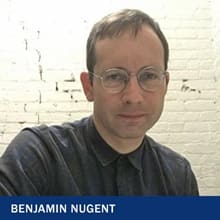 Benjamin Nugent
Benjamin Nugent
Director of Mountainview MFA, Associate Professor
Benjamin Nugent, the director of Mountainview, and an associate professor of English at SNHU, is the author of “Fraternity: Stories” (Farrar, Straus and Giroux, 2020), which was named one of the ten best books of 2020 by New York Magazine, and an Editor's Choice by The New York Times Book Review. His nonfiction has been published in Harper's and The New York Times Magazine, and his fiction received the 2019 Terry Southern Prize from The Paris Review.
Marcus Burke
Marcus Burke grew up in Milton, Massachusetts. He graduated from Susquehanna University where he played four years of varsity basketball. Burke went on to receive his MFA at the Iowa Writer’s Workshop where he was awarded a Maytag Fellowship, an Iowa Arts Fellowship, and upon graduation, a competitive grant in honor of James Alan McPherson from the University of Iowa MacArthur Foundation Fund.
Burke’s debut novel, “Team Seven”, was published in 2014 by Doubleday Books. “Team Seven” received a starred review from Kirkus Reviews, was longlisted for the 2015 PEN Open Book Award and was one of the “10 Titles to Pick Up Now,” in O, The Oprah Magazine.
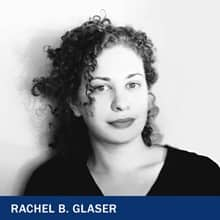 Rachel B. Glaser
Rachel B. Glaser
Rachel B. Glaser is the author of the story collection “Pee On Water,” the novel “Paulina & Fran” and the poetry books “Moods” and “Hairdo.”
In 2017, she was on Granta’s List of Best Young American Novelists. Her fiction has been anthologized in “30 under 30” and “New American Stories.”
She lives in Northampton, Massachusetts.
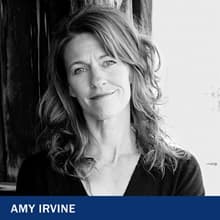 Amy Irvine
Amy Irvine
Amy Irvine is the author of numerous essays and four nonfiction books addressing environmental, Indigenous and feminist concerns. She is a contributing editor for Orion Magazine, and her work has appeared or is forthcoming in Outside, Orion, Pacific Standard, Best American Science & Nature Writing, and Best American Food Writing. Her first memoir, “Trespass”, received the Orion Book Award, and the Ellen Meloy Desert Writers Award. Her memoir, “Almost Animal”, will be published by Spiegel & Grau in Spring 2023. Irvine, a Mountainview MFA alumnus, lives, writes and teaches off-grid on a remote mesa in southwest Colorado.
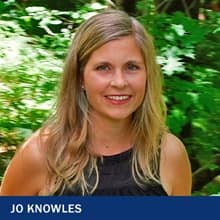 Jo Knowles
Jo Knowles
Jo Knowles is an award-winning young adult and middle-grade novelist. Her young adult books include "Living with Jackie Chan," "Pearl", "Jumping Off Swings", "Lessons from a Dead Girl" and "Read Between the Lines." Her middle grade/tween novels include "See You at Harry's," "Still a Work in Progress," "Where the Heart is," and "Meant to Be" (coming 2022). Some of her awards include a New York Times Editor's Choice and Notable Book, an American Library Association Notable Book, an IndieBound Summer Top 10, Bank Street College's "Best Book" list, Amazon's Best Middle Grades, an International Reading Association Favorite, New England Children's Booksellers Advisory Top Title, two SCBWI Crystal Kite Awards, Kirkus's Best Teen Books, the PEN New England Children's Book Discovery Award and YALSA's Best Fiction for Young Adults. Her books have appeared on numerous state book award lists for schools and libraries.
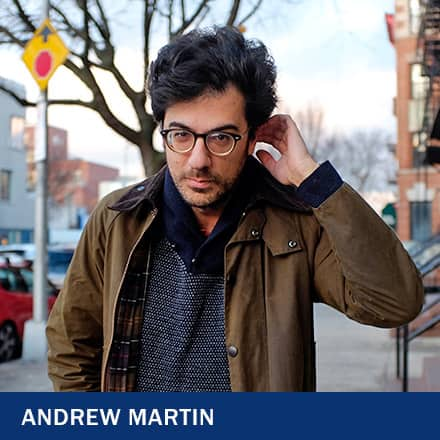 Andrew Martin
Andrew Martin
Andrew Martin is the author of the novel “Early Work”, a New York Times Notable Book of 2018 and a finalist for the Cabell First Novelist Award. He is also the author of the story collection “Cool For America”, which was longlisted for the 2020 Story Prize. His fiction has been published in The Paris Review, The Atlantic, The Yale Review, ZYZZYVA and The Los Angeles Review of Books Quarterly, and his essays and criticism have appeared in The New York Review of Books, Harper's, The New York Times Book Review, T: The New York Times Style Magazine and VICE. He has received fellowships from MacDowell and the UCross Foundation. He earned his MFA from the University of Montana and has a BA in English from Columbia University. He lives in New York.
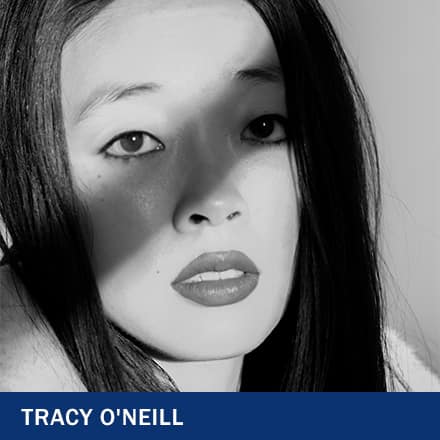 Tracy O'Neill
Tracy O'Neill
Tracy O'Neill is the author of “The Hopeful”, one of Electric Literature's Best Novels of 2015, and “Quotients”, a New York Times New & Noteworthy book, TOR Editor's Choice and Literary Hub Favorite Book of 2020. In 2015, she was named a National Book Foundation 5 Under 35 honoree, long-listed for the Flaherty-Dunnan Prize and was a Narrative Under 30 finalist. In 2012, she was awarded the Center for Fiction's Emerging Writers Fellowship. Her short fiction was distinguished in the Best American Short Stories 2016, and earned a Pushcart Prize nomination in 2017. Her writing has appeared in Granta, Rolling Stone, The Atlantic, the New Yorker, LitHub, BOMB, Vol. 1 Brooklyn, The Believer, The Literarian, the Austin Chronicle, New World Writing, Narrative, Scoundrel Time, Guernica, Bookforum, Electric Literature, Grantland, Vice, The Guardian, VQR, the San Francisco Chronicle and Catapult. She holds an MFA from the City College of New York; and an MA, an MPhil and a PhD from Columbia University. While editor-in-chief of the literary journal Epiphany, she established the Breakout 8 Writers Prize with the Authors Guild.
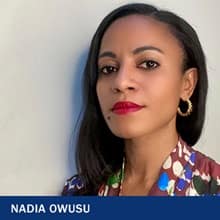 Nadia Owusu '17
Nadia Owusu '17
Nadia Owusu is a Ghanaian and Armenian-American writer and urbanist. Her first book, “AFTERSHOCKS”, topped many most-anticipated and best book of the year lists, including The New York Times, The Oprah Magazine, Vogue, TIME, Vulture and the BBC. It was a New York Times Book Review Editors’ Choice.
Nadia is the recipient of a 2019 Whiting Award. Her writing has appeared or is forthcoming in The New York Times, The Lily, Orion, Granta, The Paris Review Daily, The Guardian, The Wall Street Journal, Slate, Catapult, Bon Appétit, Travel + Leisure, and others. She lives in Brooklyn.
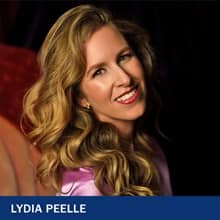 Lydia Peelle
Lydia Peelle
Lydia Peelle is the Whiting Award-winning author of the novel “The Midnight Cool” and the story collection “Reasons for and Advantages of Breathing”, a New York Times Book Review Editors’ Choice book which received an honorable mention for the PEN/Hemingway Award and was a finalist for The Orion Book Prize. Peelle is also a recipient of the National Book Foundation's "5 Under 35" honor and the Anahid Award for Armenian American writers. She will be Writer in Residence at Vanderbilt University in fall 2021.
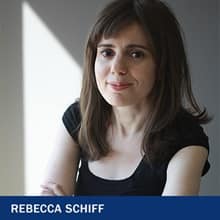 Rebecca Schiff
Rebecca Schiff
Rebecca Schiff is the author of the story collection "The Bed Moved" (Knopf 2016), a finalist for an LA Times Book Award in First Fiction and a Sami Rohr Prize.
Her fiction has appeared in Electric Literature, n+1, The Guardian, Washington Square and BuzzFeed, and it was anthologized in The Best Small Fictions 2017.
She lives in Eugene, Oregon.
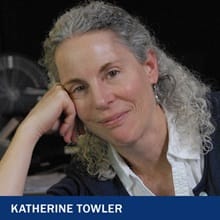 Katherine Towler
Katherine Towler
Katherine Towler is author of a trilogy of novels: “Snow Island,” Evening Ferry” and “Island Light”. Praised by the Boston Globe as “luminous and moving,” “Snow Island” was chosen as a Barnes and Noble Discover Great New Writers title.
Towler is also the co-editor, with Ilya Kaminsky, of “A God in the House: Poets Talk About Faith,” a collection of interviews with prominent American poets. Her memoir, “The Penny Poet of Portsmouth” was published by Counterpoint Press in 2016.
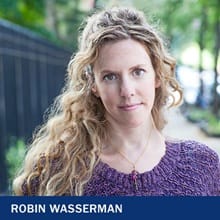 Robin Wasserman
Robin Wasserman
Robin Wasserman is the author of the novels “Girls on Fire” and “Mother Daughter Widow Wife”, a finalist for the 2021 Pen/Faulkner Award. A former children’s book editor, she is also the New York Times and USA Today bestselling author of more than ten novels for young adults. Her nonfiction has appeared in The Los Angeles Review of Books, Tin House and The New York Times. Wasserman lives in Los Angeles, where she works as a TV writer, most recently as a co-producer on the forthcoming, “Star Trek: Strange New Worlds”.
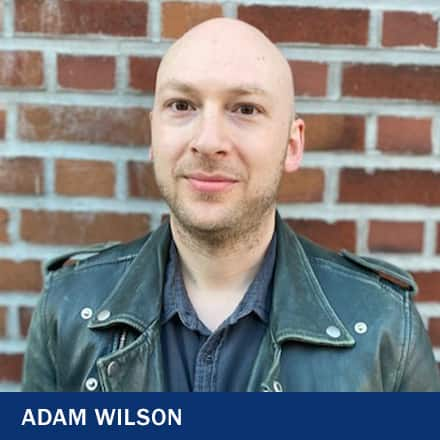 Adam Wilson
Adam Wilson
Adam Wilson is the author of three books, including, most recently, the novel “Sensation Machines”. He is a National Jewish Book Award finalist, and a recipient of the Terry Southern Prize. His work has appeared in Harper’s, the Paris Review, the New York Times Book Review, Tin House, Bookforum, VICE and the Best American Short Stories, among many other publications. In addition to Mountainview, he teaches regularly in Columbia University's MFA program. He lives in Brooklyn with his wife and son.
Letter from the Director
We're a young program, born in 2006, but we've already seen our students and alumni score book deals with major publishers, including Pantheon, Viking, HarperCollins and Simon & Schuster. One alum went on to become a Pulitzer finalist in nonfiction, and another went on to win a Whiting Award for the thesis she wrote in the program. Another of our alumni was a finalist for the Los Angeles Times Book Prize/First Fiction Award, and another is a Guggenheim Fellow.
What’s responsible for our alums’ success?
In our program, it's traditional for students to refer to their professors as their "mentors." I like this tradition because it reminds faculty of what we aspire to be.
We don't want to be mere lecturers in craft, foisting the same lessons on every student. We are teachers who get to know each student one on one, face to face and in writing, and we tailor our instruction to our students' artistic needs.
Our weeklong summer and winter residencies take place in person in New Hampshire. There, we meet with our students (our "mentees") in workshops and seminars. The conversations tend to continue over meals, on the grass in summer, or over coffee in winter.
After residency, the semester begins. Students send us their work every five weeks, and we write thorough and precise editorial letters in response. We make ourselves available to discuss our students' writing beyond these regular exchanges, on the phone, by video chat and email. No faculty member takes on more than five students at a time.
From a substantial applicant pool, we accept a cohort of about 16 students each semester, maintaining a student-faculty ratio of 5:1. Students complete four residencies during the four-semester program, and work toward a Master of Fine Arts, a terminal degree that qualifies graduates to teach at the college level.
If you have questions about our program, please don't hesitate to contact me at mfa@snhu.edu.
I look forward to hearing from you,
Benjamin Nugent
Accomplished Alumni
Many of our Mountainview graduates have gone on to success in the publishing world.
Notable alumni include:
- 2019 Whiting Award winner Nadia Owusu '17
- 2020 Edgar Award finalist John Vercher '16
- 2019 Pulitzer finalist Elizabeth Rush '11
- Raymond Carver Short Story Contest Morgan Green '21
- LA Times Book Prize for First Novel Kevin Keating '18
- Alumni published by Simon & Schuster, FSG, Bloomsbury, and other major publishers
Learn more about Mountainview graduates and what they've accomplished:
Kevin Keating '18
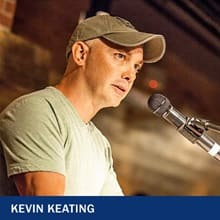
Since starting the Mountainview Low-Residency MFA, Keating has been awarded the Creative Workforce Fellowship, one of the most substantive awards for writers in the United States, and the Cleveland Arts Prize, the oldest award of its kind in America and a testament to the standard of excellence and quality of artists in Northeast Ohio. Previous winners include Toni Morrison, Rita Dove and Harvey Pekar. He has also been a featured speaker at the Miami Book Fair International.
David Moloney ’17
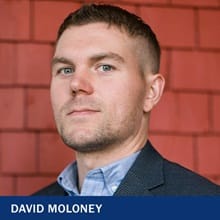
He earned his MFA from SNHU’s Mountainview Low-Residency program, where he won Assignment Magazine’s student writing contest. He was also awarded the Lynn Safford Memorial Prize.
His debut novel, "Barker House," was published by Bloomsbury in 2020. His work can be found in The Yale Review, Guernica, Lithub, Electriclit, The Common, Salamander, CrimeReads and GEN. He currently teaches writing at SNHU.
Elizabeth Rush '11
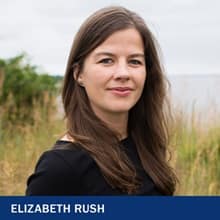
Her work explores how humans adapt to changes enacted upon them by forces seemingly beyond their control, from ecological transformation to political revolution.
Her writing has appeared or is forthcoming in the New York Times, National Geographic, the Guardian, the Atlantic, Harpers, Guernica, Granta, Orion, Creative Nonfiction, The Washington Post, Le Monde Diplomatique and the New Republic, among others.
John Vercher '16
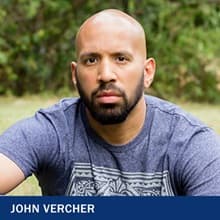
John’s debut novel, Three-Fifths, launched September 10th, 2019, from Agora, the diversity-focused imprint of Polis Books and has received praise from Kirkus and starred reviews from the Library Journal and Booklist.
Three-Fifths was named one of the best books of 2019 by the Chicago Tribune. In the U.K., Three-Fifths was named a Book of the Year by The Sunday Times, The Financial Times, and The Guardian.
Three-Fifths has been nominated for:
- The Crime Writers’ Association’s (UK) John Creasey (New Blood) Dagger (Shortlisted, 2021)
- The Mystery Writers of America’s Edgar Award for Best First Novel
- Best Debut Novel (2019) for The Strand Magazine’s Critics’ Awards
- The Anthony Award for Best First Novel
Rights to Three-Fifths have been sold in France, Japan, Spain, Brazil, Germany, Mainland China, and the U.K.
In 2021, Three-Fifths was added to the curriculum of the course “Crime in American Film & Literature” at the University of North Carolina, Charlotte. In addition, Wilton High School in Wilton, Connecticut added Three-Fifths to their curated collection of titles for their 2021 town-wide reading program.
His second novel, After the Lights Go Out, will be published by Soho Press June 7, 2022 and Pushkin Press July 2022.
Low-Residency MFA Courses & Curriculum
Our two-year program is built around one-on-one study between students and faculty, allowing you to write from home most of the year and be part of a supportive writing community during our twice-yearly weeklong residencies.
During these two years, students work toward completing their creative thesis, a book-length manuscript of publishable quality, turning in monthly submissions to their mentors, and receiving detailed feedback via correspondence and conferencing.
Each semester, students work with their individual faculty mentors in developing reading lists. Students read approximately two books a month, focusing their attention on craft analysis. Every part of the curriculum is designed to help students hone their writing craft and finish excellent theses.
Upon completion of the program, students will have earned a 60-credit graduate degree, which is considered ''a terminal degree'' in creative writing. The Mountainview MFA degree prepares students and qualifies them for applying for college teaching positions.
Required Texts for MFA Program
Required Texts
The texts are the only required texts for the MFA program. Other assigned reading will be determined on an individualized basis, as each MFA student designs a reading list with his or her mentor for each semester he or she is enrolled. Students typically read two books per month, including required texts.
1st Semester
1. "The Elements of Style," Strunk & White
2. "Politics and the English Language," George Orwell
3. "Reading Like a Writer," Francine Prose
2nd Semester
1. "How Fiction Works," James Wood (fiction only)
2. "The Art of Memoir," Amy Karr (nonfiction only)
3. “The Nature of the Fun,” David Foster Wallace
3rd Semester (Nonfiction only)
1. "The Situation and the Story," Vivian Gornick
View Full Curriculum in the Catalog
| Courses May Include | ||
|---|---|---|
| MFA in Fiction or Nonfiction Campus | ||
| MFA 511 | MFA Workshop: Fiction Writing II | Fiction Writing II is designed to extend a student's understanding of the essential principles of writing excellent fiction. As in Fiction Writing I, students will submit to the instructor every five weeks 10-25 pages of manuscript, double-spaced, in 12 point font, with pagination. In addition, and on a schedule established with the instructor, students will submit three polished fiction writing exercises throughout the semester and ten short essays, each on one book in a reading list compiled by the mentor in consultation with the student. By the end of the course the student should have completed a total of between 60 and 160 pages of polished fictional prose (prose well beyond the first or second draft) and 60 pages of polished fiction exercises. |
| MFA 512 | Graduate Fiction Workshop III | Fiction Writing Workshop III builds on the foundations lain in the previous year (two writers' residencies and two six-month faculty-mentored courses, MFA 510 and 511). In this course, students will write a 10- 15-page close-reading essay on a single work of fiction (a novel, story, or story collection) and continue work on their manuscript pages, which by now should start to take the form of a thesis to be turned in at the end of fourth semester. The student should have completed between 90 and 240 manuscript pages by the end of this course. |
| MFA 513 | Graduate Fiction Workshop IV | Fiction Writing Workshop IV completes the sequence of four residencies and four mentored semester of reading, critical analysis, writing and participation in workshops, lectures and public readings. In order to graduate, the student will turn in a final thesis of 100 to 300 manuscript pages, either a novel, a collection of stories, or a self-contained section of a novel. |
| MFA 520 | Master of Fine Arts Workshop: Nonfiction Writing I | Nonfiction Writing I is a course designed to help the student entering the MFA program in nonfiction grasp the central principles of writing professional-quality nonfiction. Students will submit to the instructor every five weeks 10-25 pages of manuscript, double-spaced, 12 point font, with pagination. In addition, and on a schedule established with the instructor, students will submit three polished nonfiction writing exercises throughout the semester and ten short essays, each on one book in a reading list compiled by the mentor in consultation with the student. By the end of the course the student should have completed between 30 and 80 pages of polished nonfictional prose (prose well beyond the first or second draft) and 30 pages of polished nonfiction exercises. |
| MFA 521 | Master of Fine Arts Workshop: Nonfiction Writing II | Nonfiction Writing II is designed to extend a student's understanding of the essential principles of writing excellent fiction. As in Nonfiction Writing I, students will submit to the instructor every five weeks 10-25 pages of manuscript, double-spaced, in 12 point font, with pagination. In addition, and on a schedule established with the instructor, students will submit three polished nonfiction writing exercises throughout the semester and ten short essays, each on one book in a reading list compiled by the mentor in consultation with the student. By the end of the course the student should have completed a total of between 60 and 160 pages of polished nonfictional prose (prose well beyond the first or second draft) and 60 pages of polished nonfiction exercises. |
| MFA 522 | Graduate Nonfiction Workshop III | Nonfiction Writing Workshop III builds on the foundations lain in the previous year (two writers' residencies and two six-month faculty-mentored courses, MFA 520 and 521). In this course, students will write a 10- 15-page close-reading essay on a single work of nonfiction (a memoir, work of literary journalism, creative essay, or essay collection) and continue work on their manuscript pages, which by now should start to take the form of a thesis to be turned in at the end of fourth semester. The student should have completed between 90 and 240 manuscript pages by the end of this course. |
| MFA 523 | Graduate Nonfiction Workshop IV | Nonfiction Writing Workshop IV completes the sequence of four residencies and four mentored semesters of reading, critical analysis, writing and participation in workshops, lectures and public readings. In order to graduate, the student will turn in a final thesis of 100 to 300 manuscript pages, either a memoir, a work of literary journalism, a collection of essays, or a self-contained section of a memoir or work of literary journalism. |
| Total Credits: 60 | ||
Complement your MFA with a Certificate
Advanced Graduate Studies in Creative Writing (Post-Master's Certificate)
If you’ve already completed your MFA and would like to revise, reconceive or complete a creative manuscript, you may want to check out SNHU's campus-based Advanced Certification in Creative Writing.
This 33-credit program still offers tracks in fiction and nonfiction. However, you'll also get to choose a secondary track, as well:
- The book business and self-promotion
- The teaching of composition
This is also a low-residency program.
Master of Fine Arts in Fiction or Nonfiction (MFA) Cost
|
MFA Program |
Cost |
|---|---|
|
Tuition |
$497.53/Credit |
|
Summer Residency Fee |
$1,200 |
|
Winter Residency Fee |
$1,200 |
|
Technology Fee |
$25 |
|
Matriculation Fee |
$150 |
Frequently Asked Questions
What does low-residency MFA mean?
A low-residency MFA program offers you the best of both worlds: You can attend the program you want from the comfort of your home, while also going on location with your peers for an in-depth residency several times throughout your studies.
One such program is the Mountainview Low-Residency MFA at Southern New Hampshire University. It's a 2-year program that features 4 residencies in New Hampshire – two each in winter and summer. (Both can be beautiful times of year here.)
These residencies include:
- Faculty seminars
- One-on-one meetings with faculty mentors to plan the upcoming semester
- Peer workshops, to discuss each other's writing
- Readings from students and faculty
- Talks and readings by visiting authors, editors and agents
Are MFA programs hard to get into?
Many MFA programs limit the number of people accepted into a program, meaning there can be some competition to earn one of the spots in them.
At Southern New Hampshire University, about 16 students are accepted each semester into the Mountainview Low-Residency MFA.
The small number of students in each fall and spring cohort allows each member to get more 1-on-1 time with their mentor.
It can also give you the chance to get to know the other writers in your cohort, since you'll have the opportunity to get to work with them at each of your program's 4 in-person residencies.
By limiting the number of students each semester, we allow you to build a community that you can take with you far beyond graduation.
What will I learn in an MFA program?
In a creative writing MFA program, you'll be hyper-focused on developing your own writing skills.
An MFA program can have a very different structure from other master's programs. For example, the Mountainview Low-Residency MFA at Southern New Hampshire University is built around 1-on-1 mentorship instead of traditional classes.
You'll take part in 4 semester-long workshops, worth 12 credits each. Here, you'll focus on a manuscript that you'll continue building off of throughout your 2-year program – a piece that will be polished and professional.
You'll also spend time penning a collection of essays, writing exercises and short essays throughout the program.
In between each semester, you'll take part in a weeklong, in-person residency. There, you'll continue to meet with the cohort you've been with throughout your program and participate in peer workshops to review one another's work.
The residencies also offer opportunities to meet with faculty, authors, editors and agents. You'll get facetime with your faculty mentor to discuss the upcoming semester.
Overall, an MFA program allows you to dedicate time to your writing, have your work reviewed regularly by a professional and build a community of like-minded individuals.
Is an MA or MFA better?
A Master of Arts and a Master of Fine Arts degree are different degrees. You'll take different courses, and they have different outcomes. So being the "better" degree is subjective.
When it comes to creative writing programs, it's important to decide what your goals are and what you want to get out of it. And at Southern New Hampshire University, you have options.
If you go the MA route at SNHU, you'll take 36 credits to earn your master's online. The online master's in creative writing allows you to both study and write creative work, and you'll also get to take part in peer workshops to help you refine your craft.
The MA also requires a teaching course, which could allow you to help others rise to a new level.
Plus, with the MA, you'll also get to choose from 4 concentrations, should you want to add one to your program:
- Fiction
- Nonfiction
- Poetry
- Screenwriting
If you choose to pursue your MFA at SNHU, you have 2 options: online or low-residency.
The online MFA in Creative Writing is an option for those who are unable to travel. This 48-credit master's program allows you to focus in a wide range of fiction genres, like contemporary, romance, young adult or speculative fiction.
When you finish an online MFA program like the one at SNHU, you should be able to walk away with a publishable piece, better understand the publishing industry and discover opportunities to showcase your work.
A bonus feature to the online MFA is an embedded certificate that's part of the program. You can choose either the certificate in professional writing or online teaching of writing, depending on where you'd like to take your career.
Courses in the online MFA include topics like social media marketing, the business of writing and the publishing ecosystem – topics that can better help you get your name in front of your potential audience.
In addition to the online program, SNHU offers a low-residency MFA writing program. The 2-year program is part mentored correspondence, part weeklong residencies in New Hampshire.
This 60-credit program is highly focused on your choice of fiction or nonfiction. In addition, only about 16 students are accepted each semester, creating a more intimate experience.
The program is intensely focused on completing a manuscript that's prepped for submission to editors. But the program also gives you the tools to teach creative writing, and it positions you for opportunities in the publishing industry.
It's best to study the courses within each program to determine which program is right for you.
What can I do with an MFA?
An MFA is a degree that specializes in one of the fine arts, including creative writing, visual arts, filmmaking, theater, performing arts or graphic design, among others. Those who pursue an MFA tend to have a creative goal in mind, like becoming an art director or a private acting coach.
With an MFA in Fiction or Nonfiction – like the Mountainview program at Southern New Hampshire University – your goal would most likely be to write and publish a book. You can use your publication history to become a teacher of creative writing at the college level.
Because one of the outcomes of the Mountainview program is to have each student finish with a manuscript of professional quality, you'll have the potential to get on that track even before you graduate.
Is MFA a terminal degree? Is MFA equivalent to PhD?
Yes, an MFA is usually considered a terminal degree.
A terminal degree is one that's academically recognized as being the furthest level of study one can pursue in that area – like the Mountainview MFA at Southern New Hampshire University. It's oftentimes what's needed to qualify to teach creative writing at the collegiate level, combined with a publication history.
Terminal degrees at the master's level aren't as common; typically, that designation goes to the PhD. And while some schools in other countries offer a Doctor of Fine Arts, it's fairly unheard of in the United States, unless it's being given as an honorary degree.
And while they're both considered terminal degrees, an MFA is not academically equivalent to a PhD.
Can you get an MFA without a BFA?
This may differ by school, but a BFA is generally not necessary to pursue an MFA – as long as you meet the institution's admission requirements.
While a bachelor's degree is required to begin a master's program, the type of undergraduate degree may not matter.
With Southern New Hampshire University's Mountainview MFA program, there's no requirement about what bachelor's degree you've already earned. We understand that many people out there change careers over their lifetime, and we try to make it easier for you to make it happen.
At SNHU, admission requirements include:
- Submitting undergraduate transcripts
- Writing a personal statement and assessment
- Turning in a writing sample
- Letters of recommendation
Your writing talents today matter more than which undergraduate program you may have studied years ago.
How much does an MFA in creative writing cost?
Costs will vary from school to school. But it's certainly possible to find an affordable MFA program.
The total tuition for the low-residency MFA program at Southern New Hampshire University is only $34,652 for the full 2-year program.
And that's the initial price. You may qualify for financial aid, reducing your current payment through grants and loans. SNHU's Student Financial Services team specializes in helping students create customized payment plans that work for their specific situations.
Connect with a financial aid specialist today to learn how you can make the cost of an MFA work for you.
Is an MFA in writing worth it?
There are plenty of benefits to earning your MFA in creative writing – a major one being the credibility it can bring to your work.
If you want training from accomplished writers, feedback from professionals and a community of peers to take the journey with, then an MFA in writing – like the low-residency program at Southern New Hampshire University – certainly could be a good direction to take.
University Accreditation

Related Articles

Is an English Degree Worth It?

SNHU Spotlight: Donna Parisi, MA in English and Creative Writing Grad


